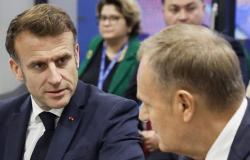« No borders in assisted reproductive technologies »: the theme of the 22e world congress on in vitro fertilization (IVF), a biannual conference organized for the first time in Morocco from November 7 to 9, 2024, calls for international knowledge sharing in the area of medically assisted procreation (AMP). Nearly fifty scientific sessions were held to discuss all research in fertility: prevention, reproductive medicine, surgery, genetics, biology, etc.
« Almost 4% of children born in France come from ART techniquessays Professor Samir Hamamah, president of the French Federation for Reproductive Studies (FFER) and professor of reproductive medicine at Montpellier University Hospital, present at the Congress. What interests us is the improvement of the care pathways in the diagnostic and therapeutic phases. ».
AI to choose treatments
The use of artificial intelligence (AI) is a major research topic: “ Studies are underway to evaluate whether AI can help us select the best sperm, analyze embryos and only place euploid embryos in the uterus. Although embryoscopes are already used, they have not demonstrated their superiority compared to other studies currently being developed. “, explains Professor Omar Sefrioui, obstetrician-gynecologist, president of the congress and the Mediterranean Society of Reproductive Medicine (MSRM). AI would ideally make it possible to choose one embryo over another based on more sensitive criteria, such as kinetic or morphological criteria.
In the case of IVF, AI could make it possible to precisely determine the most appropriate dosage of treatment to administer to a woman based on her age, BMI, hormone levels or history. The use of this software would then aim to obtain optimal oocyte harvests. The possibility of robotic follicular puncture is also being studied. “ The use of AI is a recent discipline but if the studies are conclusive, it could allow us to limit the subjectivity with which humans proceed. Respected Prof. Samir Hamamah. “Let us be careful not to talk about it as the next revolution, because there is nothing to confirm this to date, However, Professor Sefrioui qualifies this. Software remains under study ».
Endometrial preparation and frozen embryo transfer
Endometrial preparation techniques were also discussed during the congress, as well as the health of children born from frozen embryos. “ Fetal macrosomia has been observed in children born from freezing protocols, whereas in cases of IVF carried out with fresh embryo transfers, the weight remains lower.indicates Professor Sefrioui. An observation supported by Professor Hamamah, who specifies that “ children born from frozen embryos have a birth weight more than 250 g higher than children born from fresh embryos, which may further predispose them to the risk of obesity or cardiovascular diseases. On this subject, it is appropriate to study the composition of the culture media in which the embryos are produced. ». « We also observe small complications including high blood pressure, reports Professor Sefrioui for his part. But these problems are more due to the treatment given to prepare the endometrium rather than to the freezing itself. There is no point in being alarmist.”
For a prevention policy
In Marrakech, Professor Samir Hamamah also discussed the endometrial receptivity test (ERA), which aims to know the moment when the endometrium is ready for the implantation of an embryo, as well as the international prevention strategies to be implemented for fight against infertility. Author of a report on the subject submitted to the French presidency in 2022, he campaigns for the establishment of a reprotoxic label and for the opening of a “National Fertility Institute” in order to promote research and innovation, ” the success rate in terms of PMA remains unsatisfactory ».
Professor Hamamah also calls for the establishment of a prevention policy from a very young age, reproductive health not being “ never discussed in college ». « However, it is a more global health indicatorhe notes. We must therefore inform and update the knowledge of health professionals and the medical profession and involve everyone: nurses in advanced practice, midwives, doctors, etc. “. Sleep, physical activity, fight against tobacco and alcohol but also endocrine disruptors preserve fertility. In France, more than 3.3 million people are affected by difficulty conceiving.






